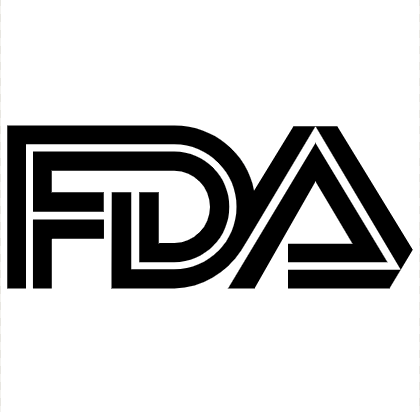Article
FDA Approves Tocilizumab for SSc Interstitial Lung Disease
Author(s):
The indication makes the IL-6 inhibitor the first biologic approved for treating pulmonary function in patients with the rare disease.

Tocilizumab (Actemra) has been approved by the US Food and Drug Administration (FDA) for the treatment of pulmonary function in patients with systemic sclerosis-associated interstitial lung disease (SSc-ILD).
The FDA approval, granted to Genentech’s subcutanenous injection, indicates tocilizumab as the first biologic therapy regulated to treat the rare pulmonary disease.
Systemic sclerosis currently affects about 75,000 Americans—approximately 80% of whom may be burdened with ILD, a progressive condition associated with worsened long function and risk of death.
Since 2010, tocilizumab has been granted 6 FDA indications, including for rheumatoid arthritis and giant cell arteritis.
In phase 3 randomized, double-blind, placebo-controlled clinical trial data supporting Genentech’s application to the FDA, investigators observed significantly reduced declines in percent predicted forced vital capacity (FVC) among patients treated with the interleukin 6 (IL-6) receptor antagonist.
Though this trial, dubbed focuSSed, failed to meet its primary endpoint of change from baseline to week 48 in modified Rodnan Skin Score (mRSS)—a common metric for skin fibrosis change in patients with SSc—outcomes for percent predicted and overall FVC were bettered among tocilizumab-treated patients.
Patients with SSc-ILD reported a lesser decline in mean percent predicted FVC than patients treated with placebo at 48 weeks: 0.07% versus -6.4%, for a mean difference of 6.47%. FVC decline was also smaller for patients treated with SSc-ILD versus placebo in the same observed period: -14 mL versus -255 mL.
At 48 weeks, tocilizumab’s safety profile was comparable for both SSc-ILD and lone SSc patients, and consistent with the known profile of the therapy in previous assessments. Infections were the most common adverse event among treated patients.
In an interview with HCPLive® at the American Thoracic Society (ATS) 2019 International Meeting, Kristin B. Highland, MD, director of the Rheumatic Lung Disease Program at the Cleveland Clinic, explained the value of lessened FVC decline in patients being treated for SSc-ILD.
“Forced vital capacity is really our best surrogate for overall lung function and it does track with what we see on chest CT; it does track with survival,” Highland explained. “This is an orphan disease—it would be a little difficult to power design the study to be a mortality study. So forced vital capacity, at this point in time, is probably our best surrogate in in all comers with interstitial lung disease.”
Regarding this new approval, Levi Garraway, MD, PhD, chief medical officer and head of Global Product Development at Genentech, highlighted the privilege of reaching a landmark indication for the burdensome rare disease.
“We are honored to offer the very first FDA-approved biologic treatment option to people living with systemic sclerosis-associated interstitial lung disease,” Garraway said in a statement. “We worked closely with the FDA to evaluate Actemra’s impact on lung function in this setting. This milestone approval provides a much-needed new treatment option for people living with this rare, debilitating disease.”





